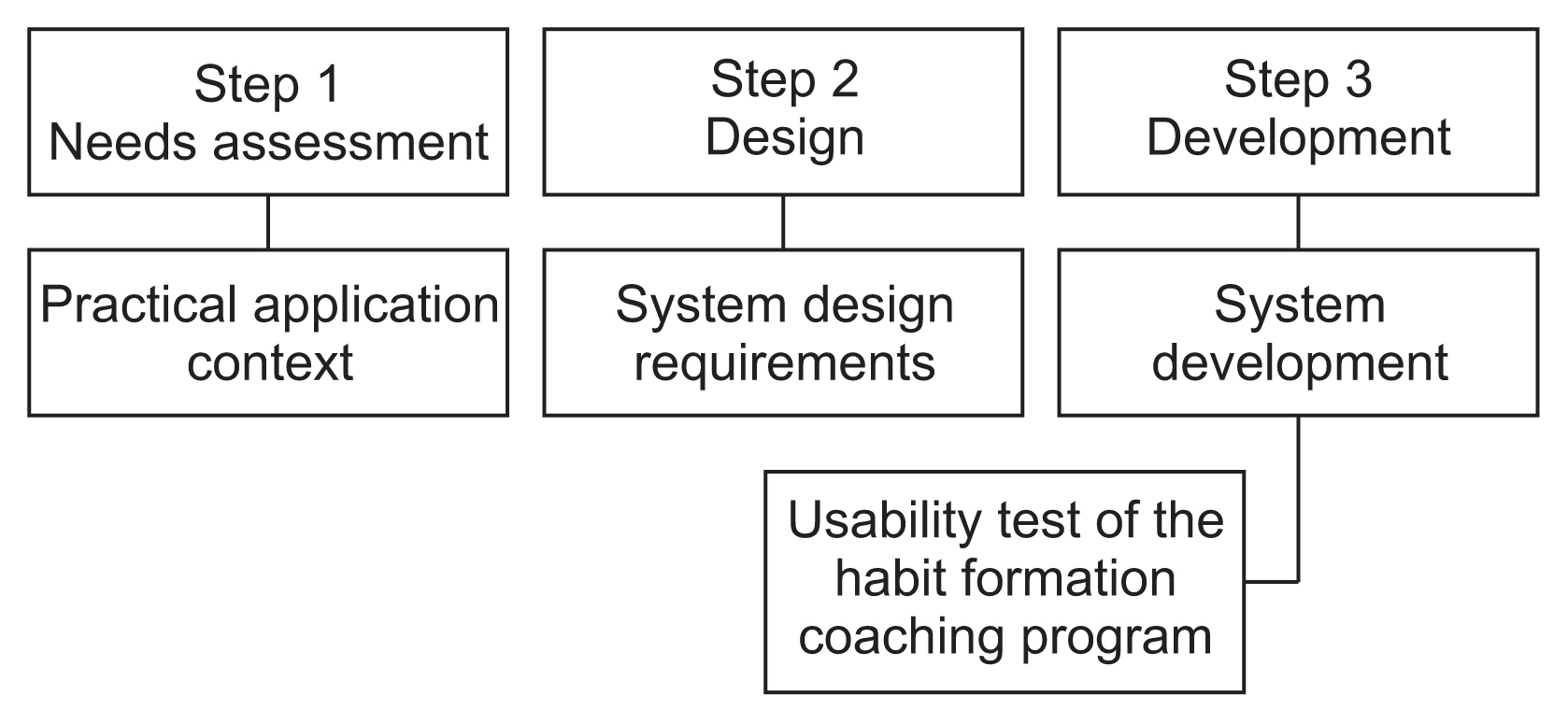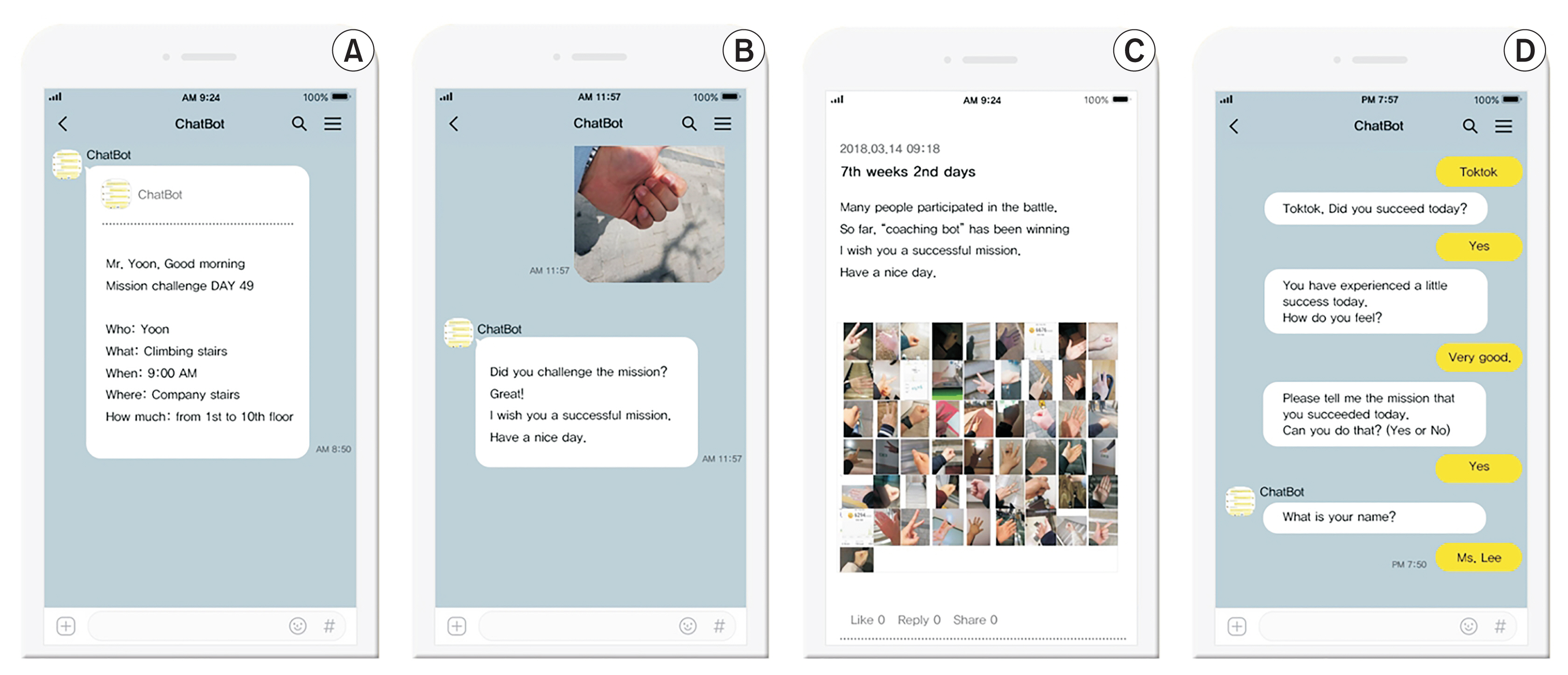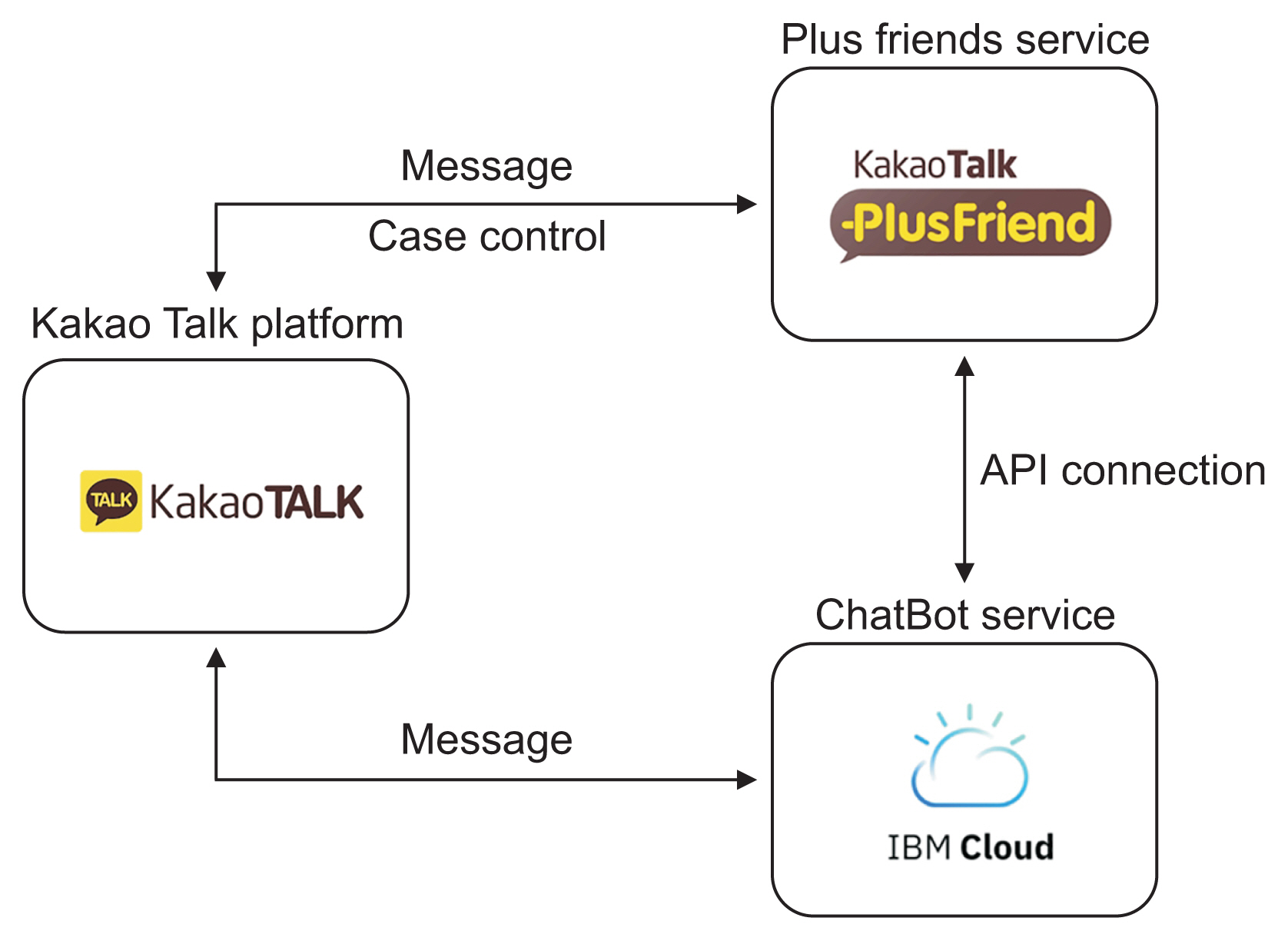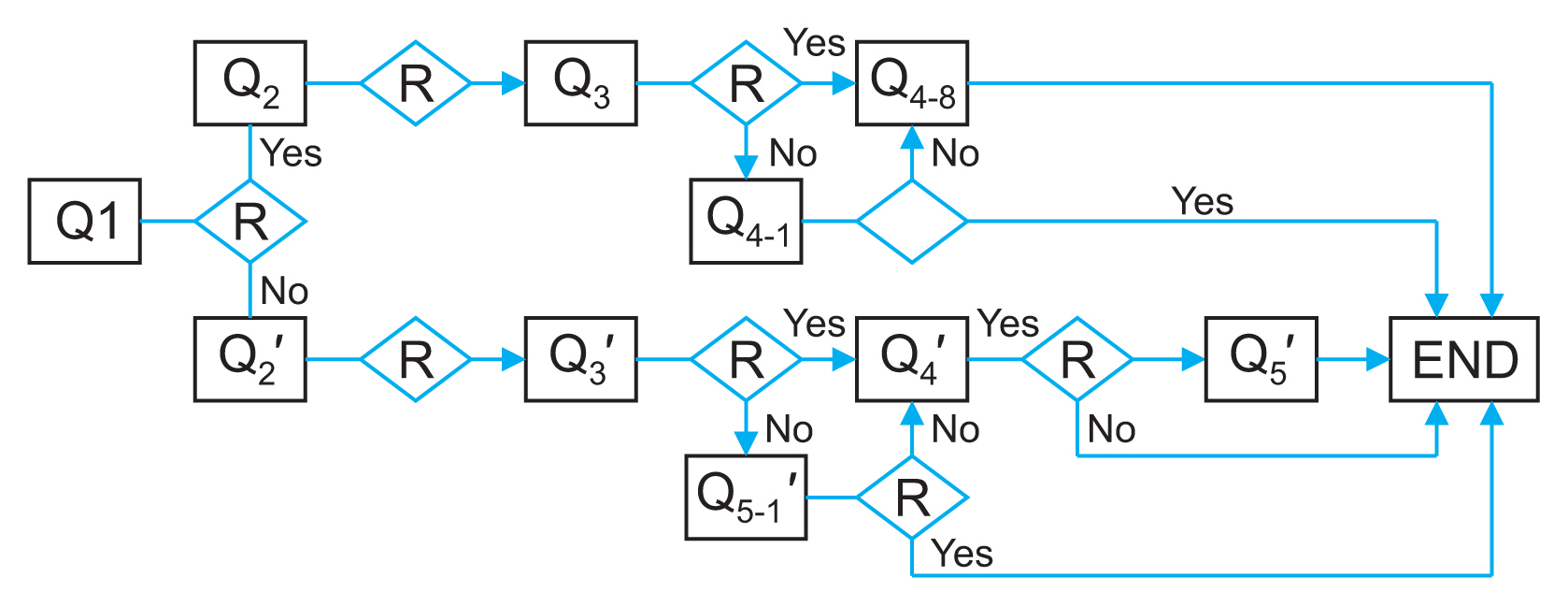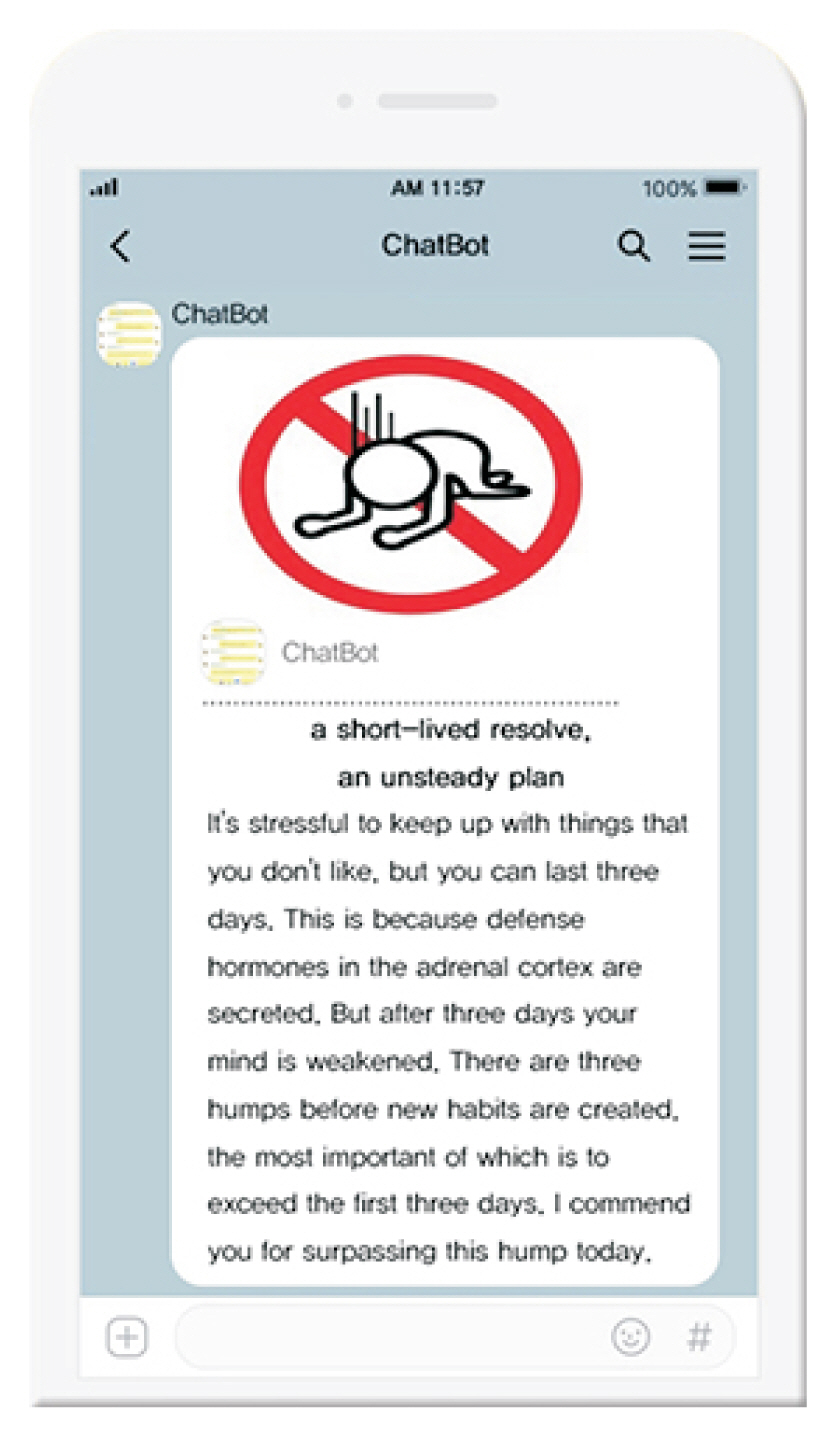Healthc Inform Res.
2020 Oct;26(4):255-264. 10.4258/hir.2020.26.4.255.
Development and Usability Evaluation of a Healthy Lifestyle Coaching Chatbot Using a Habit Formation Model
- Affiliations
-
- 1Office of Hospital Information, Seoul National University Hospital, Seoul, Korea
- 2College of Nursing, Seoul National University, Seoul, Korea
- 3Research Institute of Nursing Science, Seoul National University, Seoul, Korea
- 4College of Nursing, Gachon University, Incheon, Korea
- KMID: 2508617
- DOI: http://doi.org/10.4258/hir.2020.26.4.255
Abstract
Objectives
It is crucial to find ways to fit regular exercise into the daily lives of office workers. Non-exercise activity thermogenesis has been introduced as an effective form of daily exercise. This study aimed to develop a healthy lifestyle coaching program for office workers, to be delivered using a messenger application.
Methods
The interface was developed using KakaoTalk and Plus Friend. Performance feedback was developed using the IBM Watson conversation program. Twenty office workers used the application for three weeks. Afterward, a survey was conducted to assess the usability of and participants’ satisfaction with the application.
Results
The application delivered customized push alarms, provided information related to habit formation, allowed for one-on-one chats, and delivered rewards. The satisfaction measurement results for the application showed that extrinsic reward factors contributed the most to the performance of the activity, followed by reminders and intrinsic rewards. Regarding the usability test, the perceived usefulness of the Healthy Lifestyle Coaching Chatbot was highest, followed by the usage intent and the perceived ease of use.
Conclusions
This study found that coaching programs using chatbots can improve the effectiveness of performing simple, repetitive exercises.
Figure
Reference
-
References
1. Levine JA. Non-exercise activity thermogenesis (NEAT). Best Pract Res Clin Endocrinol Metab. 2002; 16(4):679–702.
Article2. Wood W, Tam L, Witt MG. Changing circumstances, disrupting habits. J Pers Soc Psychol. 2005; 88(6):918–33.
Article3. Wood W, Runger D. Psychology of Habit. Annu Rev Psychol. 2016; 67:289–314.
Article4. Brown T, Avenell A, Edmunds LD, Moore H, Whittaker V, Avery L, et al. Systematic review of long-term lifestyle interventions to prevent weight gain and morbidity in adults. Obes Rev. 2009; 10(6):627–38.
Article5. Lally P, Gardner B. Promoting habit formation. Health Psychol Rev. 2013; 7(sup1):S137–S158.
Article6. Ericsson. Ericsson mobility report on the pulse of the networked society [Internet]. Santiago, Chile: GSMA;2013. [cited at 2020 Mar 23]. Available from https://www.gsma.com/latinamerica/ericsson-mobility-report-networked-society/ .7. Doh Y, Keum S, Lee S, Lee J. Exploratory research on the factors that affect the usability and sustenance of wearable devices for health management: discussion of user experience in the combined perspectives of technology, psychology, and interaction. Commun KIISE. 2014; 32(11):37–45.8. Powell AC, Landman AB, Bates DW. In search of a few good apps. JAMA. 2014; 311(18):1851–2.
Article9. Gardner B, Lally P, Wardle J. Making health habitual: the psychology of ‘habit-formation’ and general practice. Br J Gen Pract. 2012; 62(605):664–6.
Article10. Ahn S. KakaoTalk’s domestic glory falls short overseas [Internet]. Seoul, Korea: The Investor;2016. [cited at 2020 Mar 23]. Available from: http://www.theinvestor.co.kr/view.php?ud=20160906000923 .11. Choi MJ, Kim WG. An exploratory study on use motivation, evaluation and selection of SNS mobile marketing services focused on the “KakaoTalk PlusChingu”. Korean J Advert Public Relat. 2013; 15(2):85–110.12. Lee J, Lee H. The effects of smart program for patients who underwent percutaneous coronary intervention (SP-PCI) on disease-related knowledge, health behavior, and quality of life: a non-randomized controlled trial. J Korean Acad Nurs. 2017; 47(6):756–69.
Article13. Gardner B. A review and analysis of the use of ‘habit’ in understanding, predicting and influencing health-related behaviour. Health Psychol Rev. 2015; 9(3):277–95.
Article14. Huang J, Zhou M, Yang D. Extracting Chatbot knowledge from online discussion forums. In : Proceedings of the 20th International Joint Conference on Artificial Intelligence; 2007 Jan 6–12; Hyderabad, India. p. 423–8.15. Srikesavan C, Williamson E, Cranston T, Hunter J, Adams J, Lamb SE. An online hand exercise intervention for adults with rheumatoid arthritis (mySARAH): design, development, and usability testing. J Med Internet Res. 2018; 20(6):e10457.
Article16. Karppinen P, Oinas-Kukkonen H, Alahaivala T, Jokelainen T, Teeriniemi AM, Salonurmi T, Savolainen MJ. Opportunities and challenges of behavior change support systems for enhancing habit formation: a qualitative study. J Biomed Inform. 2018; 84:82–92.
Article17. Louro MJ, Pieters R, Zeelenberg M. Dynamics of multiple-goal pursuit. J Pers Soc Psychol. 2007; 93(2):174–93.
Article18. Lally P, Van Jaarsveld CH, Potts HW, Wardle J. How are habits formed: modelling habit formation in the real world. Eur J Soc Psychol. 2010; 40(6):998–1009.
Article19. Venkatesh V, Davis FD. A theoretical extension of the technology acceptance model: four longitudinal field studies. Manag Sci. 2000; 46(2):186–204.
Article20. Eyal N. Hooked: how to build habit-forming products. London, UK: Penguin;2014.21. Oh S. (ro)Bot as media: an experimental discussion on news Chatbot. Korean J Commun Inform. 2016; 79(5):70–103.22. Lee MS, Kim SH. Factors affecting the use of the intelligent Chatbot services. J Serv Res Stud. 2017; 7(3):37–55.23. Wood W, Neal DT. A new look at habits and the habit-goal interface. Psychol Rev. 2007; 114(4):843–63.
Article24. Deci EL, Koestner R, Ryan RM. A meta-analytic review of experiments examining the effects of extrinsic rewards on intrinsic motivation. Psychol Bull. 1999; 125(6):627–700.
Article25. Kaushal N, Rhodes RE. Exercise habit formation in new gym members: a longitudinal study. J Behav Med. 2015; 38(4):652–63.
Article
- Full Text Links
- Actions
-
Cited
- CITED
-
- Close
- Share
- Similar articles
-
- Development of a career coaching model for medical students
- Can an artificial intelligence chatbot be the author of a scholarly article?
- The Development Study of a Medical Ethics Education Program by Using Simple ISD Model
- Development and Effects of Combined Exercise and an Exercise Habit Formation Program for Undergraduate Nursing Students
- Effects of a Coaching Program on Comprehensive Lifestyle Modification for Women with Gestational Diabetes Mellitus

